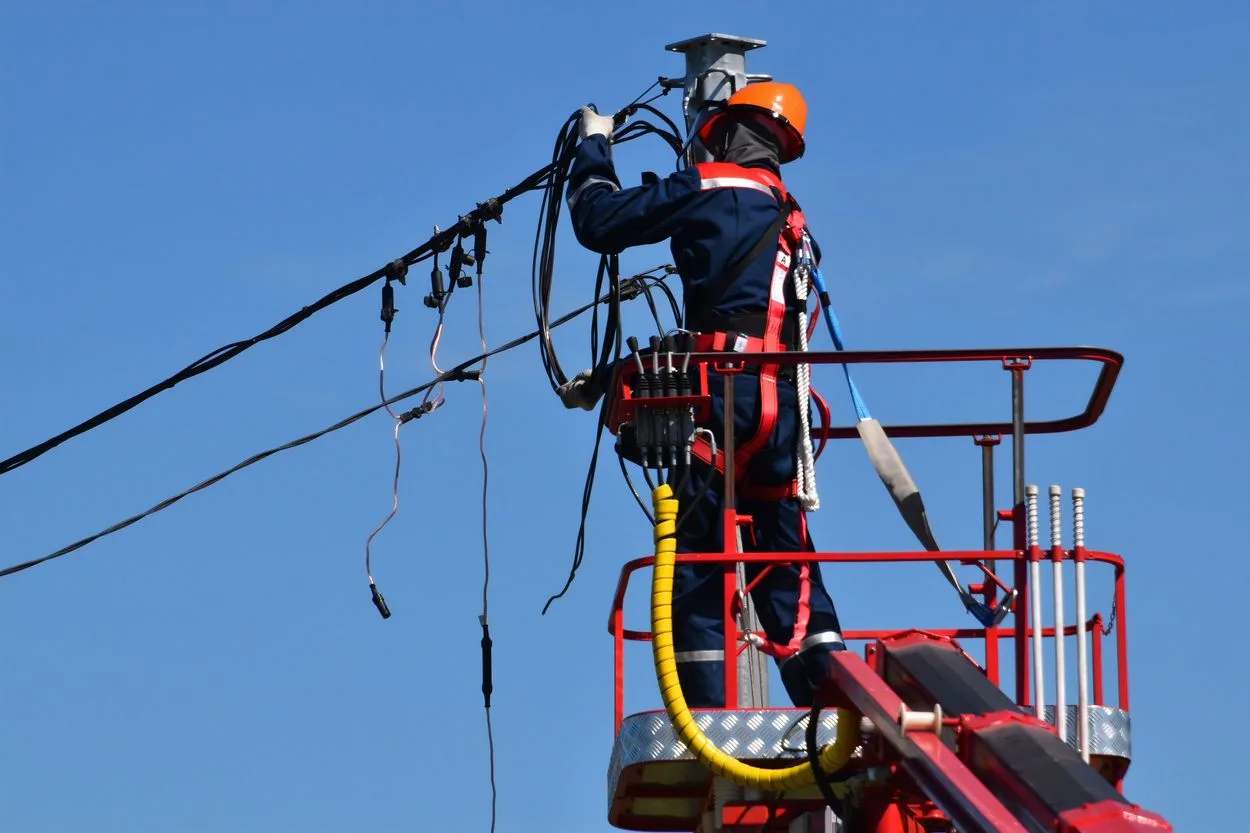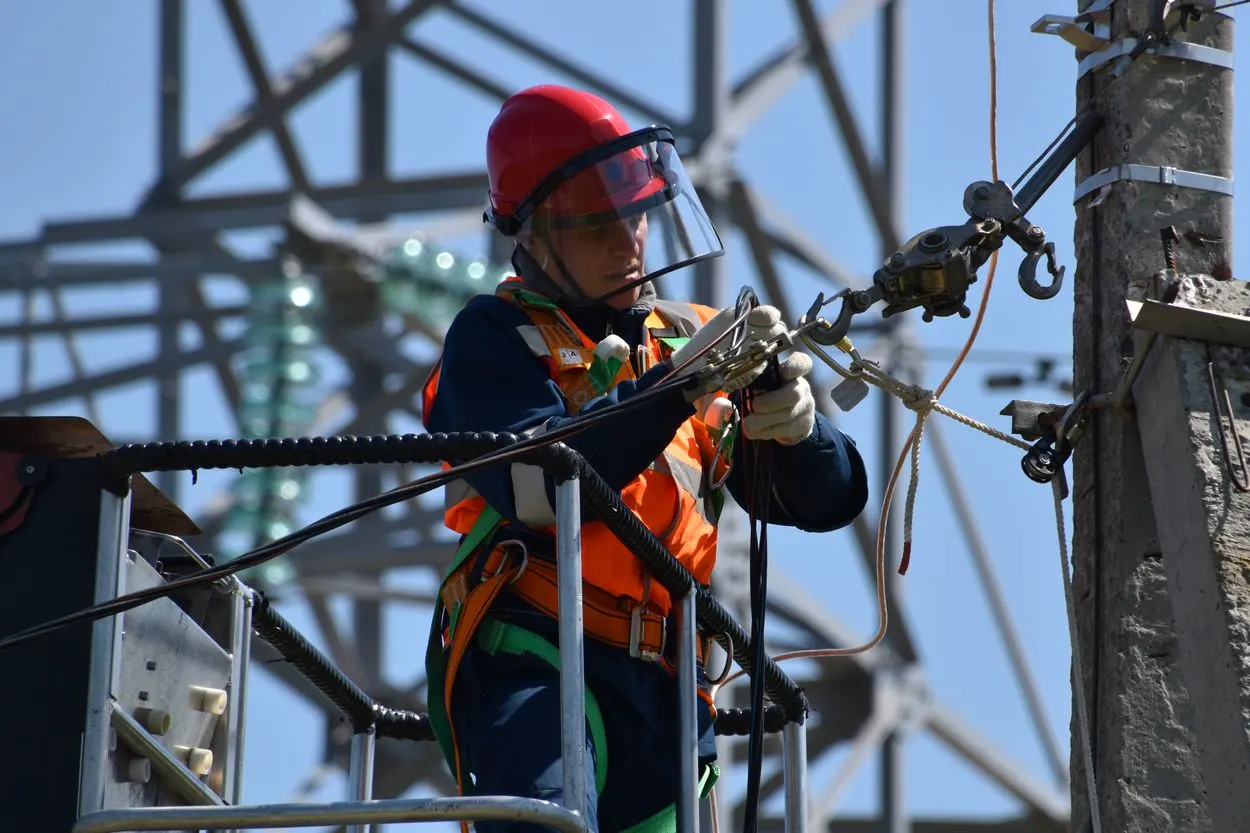Electricity has been one of the major subjects of scientific interest since the 17th century. William Gilbert was a prominent electrical engineer and the first to draw an evident distinction between magnetism and static electricity. He was given credit for establishing the term “electricity”, and he’s the designer of a device known as Versorium, which detects if there’s a statically charged object. Electrical engineers have been there from the start, just like William Gilbert. There were others too, who invented devices that we use today. For instance, in 1762, a Swedish professor named Johan Wickle, inventor of electrophorus, produced a static electrical charge.
In early times, there weren’t huge and complicated devices, thus we needed different people for different jobs. Electricians and electrical engineers have expertise in the same department. However, both have different jobs.
An electrician is a skilled worker who specializes in electrical wiring of buildings, transmission lines, stationary machines, and other related equipment. The job of electricians is to install new electrical components or maintain and repairment an existing electrical infrastructure. Furthermore, electricians are also specialized in the wiring of ships, airplanes, and many other similar things, as well as data and cable lines.
On the other hand, electrical engineering is an engineering discipline concerned with the study, design, and application of devices, systems, and equipment that utilize electricity and electronics, as well as electromagnetism. Electrical engineering is divided into many departments, for instance, computer engineering, power engineering, and radio-frequency engineering.
In electrical engineering, the major job is to design and install large power systems, while electricians install wiring and repair electrical systems. Both electrical engineers and electricians are important for any kind of electrical work, for instance, the huge generators you see are built by electrical engineers, while the wiring is the work done by an electrician, and if there’s a problem in those generators, electricians are responsible for the repair.
Keep reading to know more.
What do electrical engineers do?

The main job of electrical engineers is that they are responsible for designing as well as manufacturing software or any kind of machines because electrical engineering is related to the discipline of engineering which is concerned with the study, design, manufacture, and the application of equipment, devices and it’s systems which utilize electricity, electronics, and electromagnetism.
Every electrical engineer has an academic degree with electrical engineering, electronics engineering, or electrical engineering technology as the major, which takes four to five years to complete. The bachelor’s degree includes physics, mathematics, computer science, project management, and several other electrical engineering topics.
Some electrical engineers also pursue postgraduate degrees such as a Master of Engineering/Master of Science, a Master of Engineering Management, a Doctor of Philosophy in Engineering, and several others. These masters of engineering degrees consist of research, coursework, or sometimes a mixture.
Key Responsibilities and Skills of Electrical Engineers in Various Industries
Electrical engineers toil in a wide range of industries, and the required skills vary according to the types of industries. The jobs range from circuit theory to the supervising skills of a manager who’s given a project. The tools they mostly need range from a voltmeter to designing and manufacturing equipment for software.
Here is a list of job responsibilities of electrical engineers.
- Cooperate with the clients and identify their needs.
- Designing as well as manufacturing systems, applications, and products.
- Reading of technical drawings or specifications.
- Drawing of product plans and creating models/prototypes by using 3D software.
- Working and cooperating with the design team.
- Management of time.
- Supervising tradespeople.
- Conduction of feasibility studies.
- Designing as well as conducting tests, and analyzation and reporting the data
- Preparing for presentations and writing reports.
- Insurance of the things related to the project and for safety regulations.
Here is a video that explains electrical engineering in depth.
Can an electrical engineer work as an electrician?
The job of an electrical engineer is far broader than the job of an electrician, electrical engineers might be able to do the job of electricians, but electricians can’t do what an electrical engineer does.
Electrical engineers primarily work in multidisciplinary teams, meaning they are majorly involved in designing, implementing, testing, and maintaining electrical systems.
Many people think that electricians and electrical engineers are the same people. However, they have some differences, mostly in educational backgrounds, as they’re two different careers.
Both electricians and electrical engineers work with electricity, but they both have different job roles.
Electricians are responsible for electrical wiring, which includes installation and maintenance, as well as repair, while the job of electrical engineers is more complicated. Electrical engineers study, design, and manufacture control systems and components.
Do electricians make good money?

An average pay rate of an electrician in the United States is around $26 an hour and $57k annually. As I said pay rate varies with the region, the median salary is around $44k, but it varies by state.
The pay scale of an electrician is different in every region. However, a study said, “Between 2019 and 2029, electrician employment is supposed to grow faster than most of the other professions” With that, the pay can increase or decrease. It depends on how good an electrician is.
Here is the list of the top-paying states for electricians:
| State | Hourly pay | Annually |
| Illinois | $39.25 | $81,650 |
| New York | $39.11 | $81,340 |
| Hawaii | $38.12 | $79,280 |
| District of Columbia | $38.00 | $79,030 |
| Oregon | $36.56 | $76,040 |
Electricians are considered versed tradespeople who work in different settings, including residential homes, business buildings, and factories. An electrician’s work is installing, maintaining, testing, and repairing the electrical systems, which can include different wirings, electrical control systems, electrical equipment, and machinery.
In the life of an electrician, traveling can be a big part, as they’re needed where there is electricity. They also work side by side with other engineers.
Let’s have a look at the responsibilities of an electrician:
- Making plans for electrical systems.
- Install wiring, control systems, and lighting in any kind of new building.
- Formation of electrical circuits, installation of switches, and circuit breaker panels, as well as relays.
- Testing to find any faults.
- Reading technical documentation and diagrams.
- Maintenance of electrical systems and ensuring safety.
- Repairment and up-gradation of faulty electrical equipment.
- Working with the team, which includes electricians and tradespeople.
What’s the highest paying electrical job?

Electricians who work in industries earn slightly more because of their demand and location.
However, here is the list of the highest-paying electrical job:
- Avionics technician. The national average salary is $35,935 annually.
Avionics technicians are responsible for installing and maintaining electrical systems on an aircraft.
- Commercial electrician. The national average salary is $39,935 annually.
A commercial electrician job is very similar to an industrial electrician job. However, they don’t have as much expertise in manufacturing settings. Thus, the reason for such great pay is high demand.
- Marine technician. The national average salary is $45,052 annually.
Marine technicians are responsible for installing and maintaining the electrical systems on boats.
- Wind turbine technician. The national average salary is $50,174 annually.
Wind turbine technician has the job of installing, repairing, and inspecting wind turbines.
- Electrical technician. The national average salary is $51,727 annually.
Electrical technicians work on buildings, including repairing, testing, and maintaining electrical equipment.
- Maintenance electrician. The national average salary is $53,076 annually.
Maintenance electricians work in a commercial or manufacturing setting to install, repair, and maintain electrical equipment.
- Lineman. The national average salary is $53,352 annually.
Lineman only repairs and maintains outdoor electrical equipment, including power lines and poles.
- Electrical foreman. The national average salary is $58,272 annually.
The electrical foreman supervises other electricians on interior and exterior projects, including construction sites or electrical stations. They’re in charge of planning and designing electrical systems and overseeing other electricians installing and maintaining them.
- Industrial electrician. The national average salary is $60,216 annually.
Industrial electricians are responsible for repairing and maintaining electrical equipment in commercial and manufacturing settings.
- Solar installer. The national average salary is $62,691 annually.
The solar installer, also known as a solar technician or PV installer, can install and maintain photovoltaic systems or solar panels.
- Substation technician. The national average salary is $69,423 annually.
Substation technician, also known as a substation electrician, monitors, manages, and maintains substations. They manage and send power to homes or businesses in their area.
- Automation technician. The national average salary is $77,818 annually
Automation technicians work with electrical systems that control automation in many varieties of settings, this can include manufacturing and industrial processing.
To Conclude

- Electricity has been a subject of scientific interest for centuries. The early pioneers like William Gilbert contributed to its understanding.
- Electricians and electrical engineers are distinct professions with unique roles.
- Electricians specialize in installing, maintaining, and repairing electrical systems in various settings. It includes many things, from buildings to machinery.
- Electrical engineers design and manufacture electrical systems, covering control and electronics areas.
- Electricians handle wiring and maintenance. In contrast, electrical engineers create and oversee large electrical systems.
- Electricians can’t perform the broader tasks of electrical engineers. This is due to their different educational backgrounds and responsibilities.
- Electricians salaries vary by location, with the national average around $57,000 annually. It shows good demand in the field.
- Various high-paying electrical jobs include industrial electricians, automation technicians, and substation technicians. Their salaries range from $60,000 to $77,000 annually.

